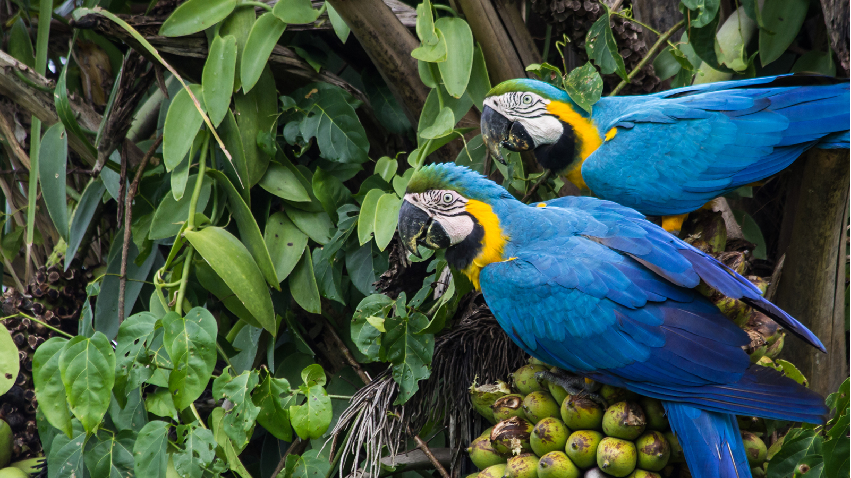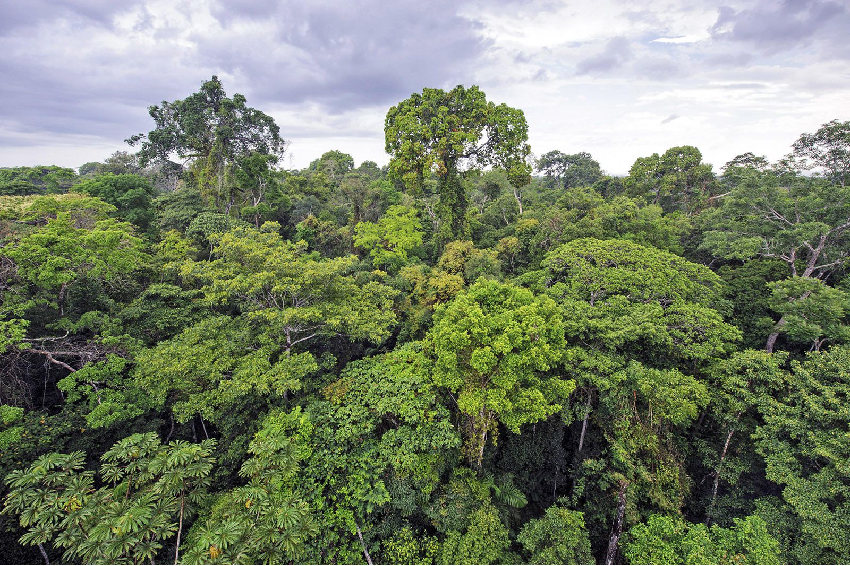The protection of the rainforest is of vital importance both in the fight against the climate crisis and to preserve biodiversity. You can also protect the tropical forest with actions in your day-to-day. We have seven tips for you.
The importance of the rainforest
If all the rainforests disappeared, the climate would change all over the Earth and it would be a disaster for most forms of life. Researchers have discovered that then there would be less rain and the steppes and deserts would spread unstoppably.
As important as the rainforest is for climate and nature, humans continue to penetrate deeper and deeper into the last untouched corners of the rainforests.
The tropical forest is being ruthlessly exploited and cut down for its timber and other resources or to be replaced by plantations to feed livestock or produce cheap ingredients for the ultra-processed food industry.
The national and international authorities should take the most effective measures, but until this happens, what can each of us do?
Tips to protect the rainforest

You can protect the rainforest in your daily life with the following tips:
Change The Way You Use Paper Products
Paper is mainly made up of cellulose. Much of the pulp used is imported and comes from tropical forests. A large part is used for hygiene items, packaging, as well as short-lived print products (such as mailbox advertising).
Make sure the toilet paper is recycled paper. Apply the same criteria when buying books, notebooks, folios… Place a sticker on your mailbox that says “No advertising”. By doing so, you help to not passively support consumption.
You can also save some paper when printing. Think carefully beforehand whether printing is really necessary and uses both sides.
Eat Less Meat Or, Ideally, No Meat At All
World meat production has almost quadrupled in the last 50 years. This is not only problematic for health, but also for the rainforest. To satisfy the world’s desire for meat, many animals are needed, which in turn need food. Approximately one-third of the world’s agricultural land is needed for fodder production.
Livestock feed production is one of the main drivers of global deforestation. Even the meat produced and bought in Europe is fed with soy from the jungle. The EU imports more than 70% of soybean plants for animal feed (soybeans and meal, mainly from Brazil).
Another problem is the raising of cattle in the jungle. Brazil has the largest commercial cattle farm in the world and is also the largest exporter of cattle on the planet. The rainforest is being cleared to make way for cattle farms.
Not buying meat at all would be the best thing for the rainforest. You can try vegetarian or vegan variants of meat dishes.
Avoid Palm Oil Products And Shop Regionally If Possible
In Indonesia alone, a huge area of tropical forest has been cleared for palm oil cultivation since 1990. Palm oil can be found in many supermarket products (particularly baked goods, pastries, snacks, and ultra-processed foods). And it is also used generously in cosmetic products.
It is best to avoid palm oil products as much as possible. Try to buy food produced in your region and if you want a product of tropical origin, give priority to fair trade or certified organic.
Another problem is the raising of cattle in the jungle. Brazil has the largest commercial cattle farm in the world and is also the largest exporter of cattle on the planet.
Not buying meat at all would be the best thing for the rainforest. You can try vegetarian or vegan variants of meat dishes.
Buy Second-Hand Or Sustainable Wood Furniture
The extraction of wood for furniture is another reason for the deforestation of the forest. Tropical wood often arrives in Europe illegally and is sold without much problem.
Therefore, it is better to buy furniture made from local tree species, such as pine, oak, or beech. Also not always everything has to be new, you can find beautiful second-hand furniture.
Do Not Renew Your Mobile And Buy Second-Hand
Mobile phones and other electronic devices contain mineral resources (rare earth) that come from mines in tropical forests. Although the proportion of rare earth per cell phone is low, the electronics industry is one of the main buyers of these natural resources.
When buying a smartphone, look for quality and use it for as long as possible. You don’t have to get rid of your phone because a new model came out, nor do you have to throw it away before trying to repair it.
If you have to buy a new smartphone, you can choose a Fairphone. It is manufactured in a way that saves resources, the raw materials are extracted under fair conditions, and it can be easily repaired and upgraded.
Be A Role Model And Take Action
Talk to your family, friends, and acquaintances about problems in the rainforest. They may not know that they, too, can play an active role in protecting it. You can also encourage more efficient use of paper resources at your children’s school or at work. True to the motto, “do good and talk about it”, you can set a good example and inspire your peers to also adopt a more sustainable lifestyle.
If you also want to be active, sign petitions to your political representatives and authorities on the topic of rainforest protection. If all this is still not enough for you, you can also start your own petitions or write to the social networks of companies that consume resources from the rainforest and contribute to its deforestation.
You may also be interested in A day at the Elephant nature park in Chiang Mai

